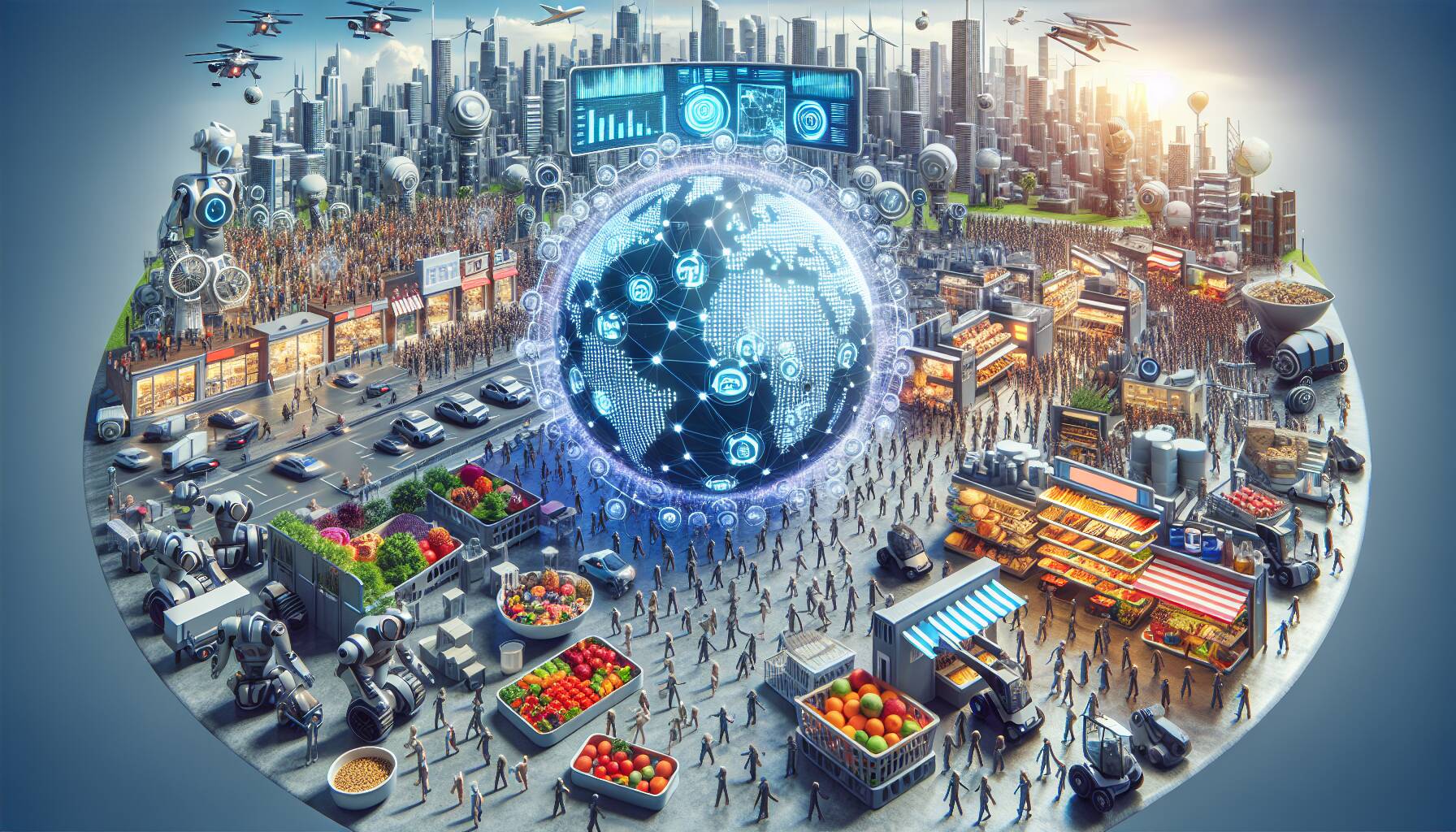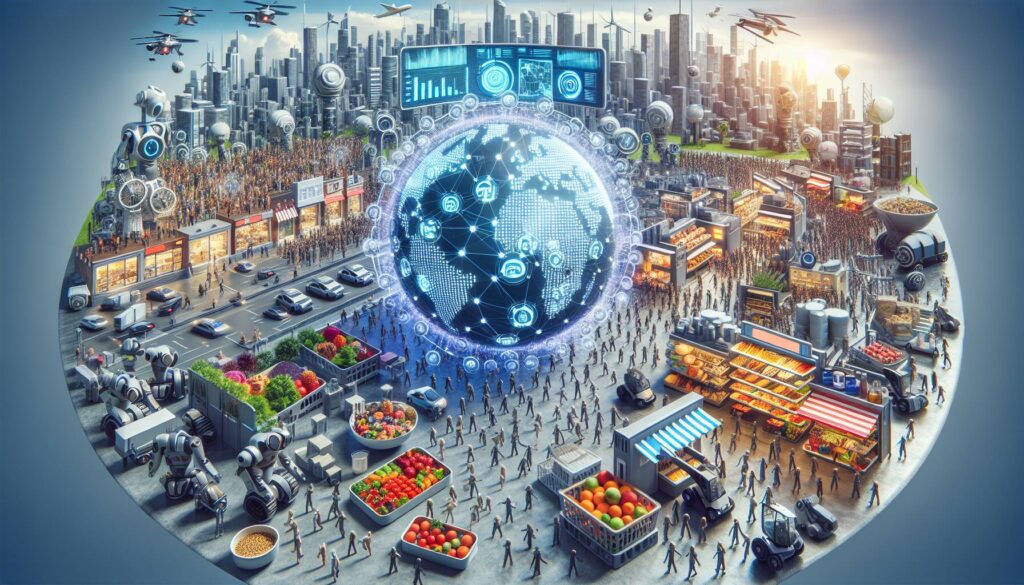The world is on the brink of a revolutionary transformation, driven by advancements in artificial intelligence and robotics. This shift is not merely changing how we work; it’s redefining the very essence of our labor and its necessity in our daily lives. Welcome to the era of the Automated Abundance Economy, a concept that envisions a future where the majority of jobs are performed by machines, allowing humanity to rethink its relationship with work and wealth.
At the core of this emerging economy is the principle of near-total automation. As technology continues to advance at an unprecedented pace, machines are set to take on roles traditionally held by humans across various sectors, from agriculture to education and healthcare. This enhanced productivity could lead to a world where basic needs are met with minimal human involvement, ultimately leading to a shift in how we perceive wealth and success.
The Automated Abundance Economy posits that as automation generates vast amounts of wealth, it should be shared through mechanisms such as universal basic income (UBI), creating a safety net for all citizens.
Critics often label UBI as a form of socialism; however, advocates argue it allows for private ownership and entrepreneurship to thrive while ensuring everyone benefits from the technological advancements that power this economy. People would no longer have to trade their time for survival, enabling a focus on passion projects and creative endeavors instead.
The implications of this transition extend beyond the workplace. Automation may revolutionize everyday life with tasks like cleaning and cooking taken care of by household robots, giving families back precious hours to spend as they choose. Furthermore, governance could evolve into more transparent systems driven by AI, redefining civic engagement and decision-making processes.
As we stand on the threshold of the Automated Abundance Economy, it becomes crucial to navigate its potential pitfalls, ensuring technology serves all of humanity while preserving ethical considerations and social equity.
The vision of a future where human creativity, connection, and exploration flourish promises a transformational impact on society. Rather than resisting this evolution, we are called to guide it, striving for a world where freedom, fulfillment, and dignity are not privileges for a few, but rights for all.

Automated Abundance Economy: A New Dawn
The transformation brought by technological advancements could reshape our lives and society significantly.
- Technological Shift
- Rapid evolution of artificial intelligence and robotics.
- Impact on jobs: machines performing tasks traditionally done by humans.
- Automated Abundance
- Essentials of life produced in abundance with minimal human labor.
- Wealth generated through automation, shared among citizens.
- Universal Basic Income (UBI)
- Redistribution of wealth as a dividend for every citizen.
- Provides economic citizenship, ensuring basic needs are met without traditional employment.
- Changing Values
- Shifts perception of work and intrinsic value of individuals.
- Encouragement of creative and fulfilling pursuits, rather than obligatory employment.
- Social Implications
- Possibility of a cultural renaissance, fostering creativity and innovation.
- Increased quality of life with time freed from routine jobs.
- Governance Evolution
- Potential for AI-managed public systems to reduce bureaucracy.
- Direct voting and decision-making enabled by technology.
- Inclusivity and Ethics
- Need for collaboration among diverse groups to shape this future ethically.
- Addressing risks of wealth concentration and job displacement.
“Our task isn’t to fight the future—it’s to guide it, to shape a society where freedom, fulfillment, and human dignity aren’t just reserved for the lucky few.”
Exploring the Automated Abundance Economy: Impacts and Implications
The rise of artificial intelligence and robotics heralds an economic transformation that could redefine our relationship with work. The concept of the Automated Abundance Economy posits that when machines can perform the majority of tasks, the essential needs of society could be met without the traditional labor requirement. This evolution brings notable competitive advantages, such as increased productivity and the potential for universal basic income (UBI). Such an income would provide a safety net, allowing citizens to thrive without constant employment. This can benefit those in vulnerable positions—like gig workers or low-wage employees—who traditionally face job insecurity. By redistributing the wealth generated from automation, society could empower individuals to pursue creative and fulfilling endeavors rather than merely survive.
However, the Automated Abundance Economy also introduces significant challenges. Critics argue that it may exacerbate wealth inequality if the benefits of automation are not equitably distributed. If a small number of corporations and individuals accumulate most of the wealth from automation, it could lead to social unrest and further disenfranchisement of the working class. It is essential to consider the potential consequences for those whose jobs are rendered obsolete; without proper transition support, such as retraining opportunities, this demographic could face economic hardship.
The implications extend beyond economic structures; they reach deep into societal values and personal identity. The transition to a world where survival does not hinge on employment could alter how people view their self-worth, potentially leading to an identity crisis for those who find value in their professional roles.
Moreover, the interest in personal robotics raises questions about privacy, surveillance, and ethical governance. As automation becomes more integrated into personal lives, stakeholders must navigate the risks of data misuse and the loss of human touch in critical areas like caregiving and decision-making. Innovations in governance may simplify bureaucratic processes but could also dilute personal agency if not managed transparently.
In summary, while the Automated Abundance Economy offers a transformative vision of society that can free individuals from traditional labor constraints, it simultaneously creates a host of challenges that require careful consideration. It has the potential to empower creativity and innovation while also necessitating robust systems to ensure that the future is equitable for all members of society.

















